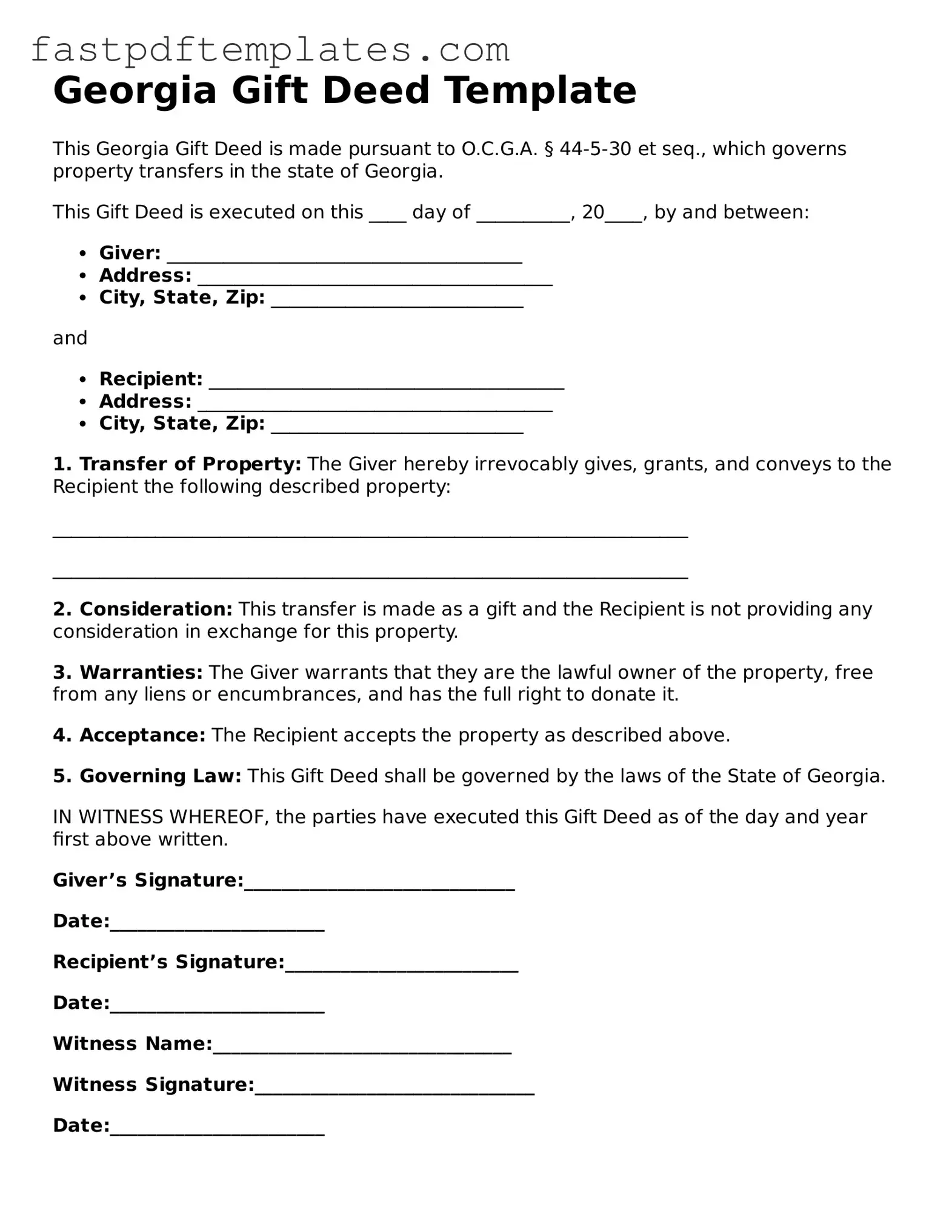Attorney-Approved Georgia Gift Deed Document
A Georgia Gift Deed is a legal document used to transfer property ownership without any exchange of money. This form allows a property owner to give their real estate to another person as a gift. Understanding how to properly complete and file this deed is essential for both the giver and the recipient.
Access Document

Attorney-Approved Georgia Gift Deed Document
Access Document
Your form still needs completion
Complete your Gift Deed online and download the final PDF.
Access Document
or
Click for PDF Form
